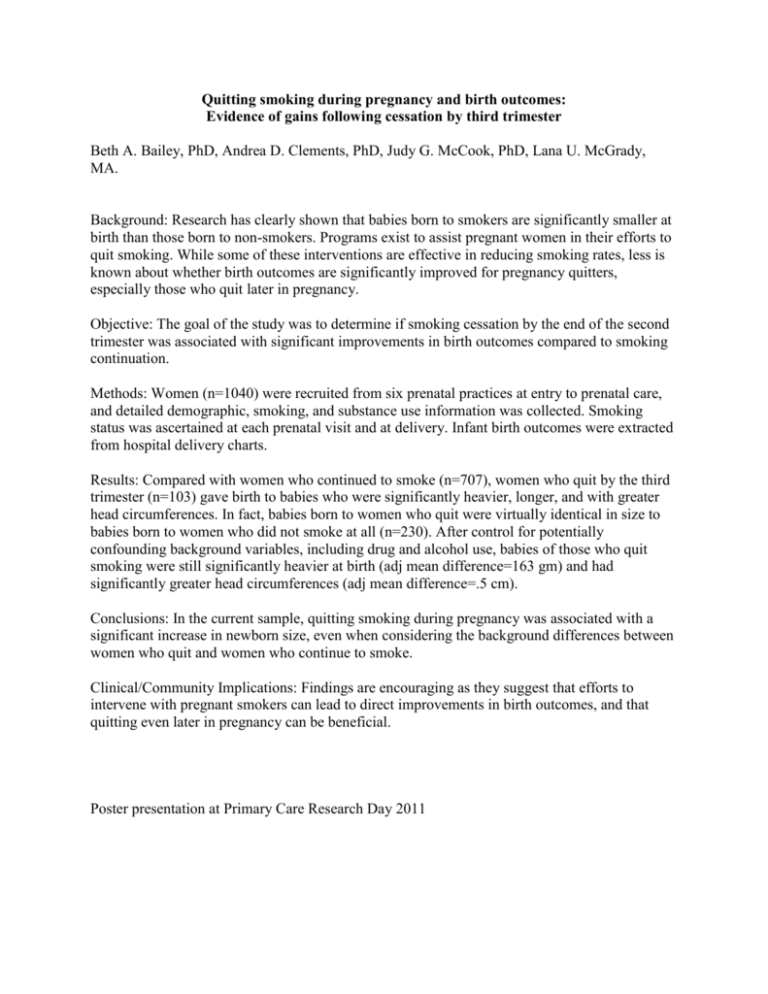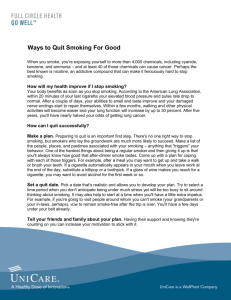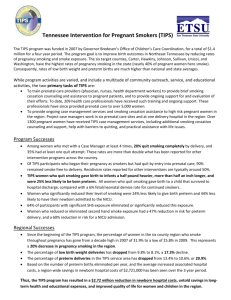Quitting smoking during pregnancy and birth outcomes: Evidence of
advertisement

Quitting smoking during pregnancy and birth outcomes: Evidence of gains following cessation by third trimester Beth A. Bailey, PhD, Andrea D. Clements, PhD, Judy G. McCook, PhD, Lana U. McGrady, MA. Background: Research has clearly shown that babies born to smokers are significantly smaller at birth than those born to non-smokers. Programs exist to assist pregnant women in their efforts to quit smoking. While some of these interventions are effective in reducing smoking rates, less is known about whether birth outcomes are significantly improved for pregnancy quitters, especially those who quit later in pregnancy. Objective: The goal of the study was to determine if smoking cessation by the end of the second trimester was associated with significant improvements in birth outcomes compared to smoking continuation. Methods: Women (n=1040) were recruited from six prenatal practices at entry to prenatal care, and detailed demographic, smoking, and substance use information was collected. Smoking status was ascertained at each prenatal visit and at delivery. Infant birth outcomes were extracted from hospital delivery charts. Results: Compared with women who continued to smoke (n=707), women who quit by the third trimester (n=103) gave birth to babies who were significantly heavier, longer, and with greater head circumferences. In fact, babies born to women who quit were virtually identical in size to babies born to women who did not smoke at all (n=230). After control for potentially confounding background variables, including drug and alcohol use, babies of those who quit smoking were still significantly heavier at birth (adj mean difference=163 gm) and had significantly greater head circumferences (adj mean difference=.5 cm). Conclusions: In the current sample, quitting smoking during pregnancy was associated with a significant increase in newborn size, even when considering the background differences between women who quit and women who continue to smoke. Clinical/Community Implications: Findings are encouraging as they suggest that efforts to intervene with pregnant smokers can lead to direct improvements in birth outcomes, and that quitting even later in pregnancy can be beneficial. Poster presentation at Primary Care Research Day 2011











